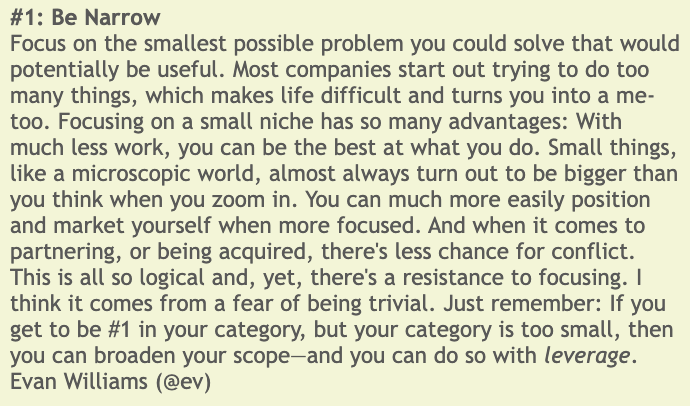
Ten Rules for Web Startups by @ev (2005)
1: Be Narrow
2: Be Different
3: Be Casual
4: Be Picky
5: Be User-Centric
6: Be Self-Centered
7: Be Greedy
8: Be Tiny
9: Be Agile
10: Be Balanced
11 (bonus!): Be Wary
1: Be Narrow
2: Be Different
3: Be Casual
4: Be Picky
5: Be User-Centric
6: Be Self-Centered
7: Be Greedy
8: Be Tiny
9: Be Agile
10: Be Balanced
11 (bonus!): Be Wary
Source: web.archive.org/web/2006040809…
• • •
Missing some Tweet in this thread? You can try to
force a refresh
















